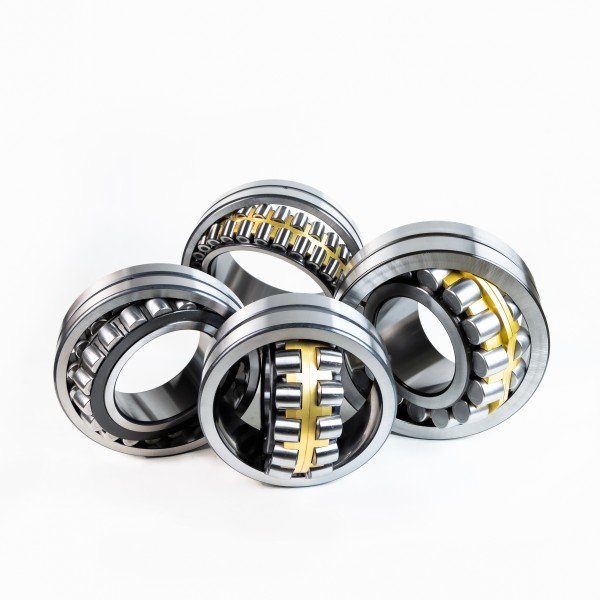Sliding bearing realizes the movement between shaft and bearing through Sliding friction, while rolling bearing realizes the movement between shaft and bearing through rolling friction. On ball mills, due to their complex working conditions and high speed and high load requirements, rolling bearings are generally chosen.
Rolling bearings have many advantages that make them suitable for ball mill applications. First, rolling friction is smaller than Sliding friction, which can reduce energy loss and friction heat, and improve the efficiency of the machine. Secondly, the motion of rolling bearings is stable and can withstand large radial and axial loads, making them suitable for high-speed rotating movements. In addition, rolling bearings also have advantages such as long service life and convenient maintenance.
On ball mills, rolling bearings are usually used to support the bearing parts of the drum and transmission device. They can withstand high-speed rotation and impact forces from abrasives and media materials, ensuring the normal operation of the equipment. Due to the harsh working environment of ball mills, bearings are required to have high sealing and dustproof capabilities to prevent abrasive and media from entering the interior of the bearings and affecting their operation.
In short, the application of sliding bearings to rolling bearings in ball mills can improve the reliability and operational efficiency of equipment, extend the service life of bearings, and reduce maintenance costs.
The following are the main defects of sliding bearings:
1. Friction and wear: Sliding bearings reduce the contact between sliding and rolling parts through friction, but friction can lead to energy loss and component wear, thereby reducing bearing life and operating efficiency.
2. High lubrication requirements: Sliding bearings need to maintain sufficient lubricant to reduce friction and wear, so it is necessary to regularly add and replace lubricants, which increases maintenance costs and workload.
3. Difficulty in heat generation and dissipation: Due to friction, sliding bearings generate heat, and due to their large contact area, heat dissipation is slow. This may cause overheating of bearings and adjacent components, affecting the operational stability and lifespan of the equipment.
4. Not suitable for high-speed operation: Due to the local squeezing and dissipation of lubricants, sliding bearings are prone to lubrication failures at high speeds, affecting their stability and service life, and are not suitable for high-speed operation applications.
5. Vibration and noise: During the operation of sliding bearings, vibration and noise are easily generated due to the presence of friction, which further affects the stability of the equipment and the working environment.
6. Difficulty in maintenance and repair: The structure of sliding bearings is complex and usually requires maintenance and repair, which consumes a lot of time and labor costs.
In summary, the main defects of sliding bearings include friction and wear, high lubrication requirements, difficulty in heat generation and dissipation, unsuitable for high-speed operation, vibration and noise, as well as difficulties in maintenance and repair.
The main advantages of rolling bearings are:
1. Low energy consumption, using rolling bearings instead of sliding bearings reduces the energy consumption of the ball mill by about 10%.
2. Easy to disassemble. Adopting a special cone sleeve design, the installation is particularly simple, avoiding the scraping and grinding operation of rolling bearings, making it easy to maintain.
3. Long service life. Due to the fact that the selection of bearings on ball mills can only be based on the processing capacity or ore discharge capacity, the selected bearings greatly exceed their designed bearing capacity. Therefore, the service life of rolling bearings on ball mills is often longer than that of ball mills, and their performance is good.
4. The lubrication method is simple, and the rolling bearings are lubricated with lubricating grease, which only needs to be added regularly, ensuring reliable lubrication.
Therefore, the use of rolling bearings in ball mills has good economic benefits. Not only does it have low friction resistance, low energy consumption, low operating current, stable startup, but it also has significant energy-saving effects, reduces supporting facilities, and saves costs.

article source: https://www.cf-bearing.com/news/application-of-changing-sliding-bearing-to-rolling-bearing-in-ball-mill/
Media Contact
Company Name: Dalian Chengfeng Bearing Sales Co., Ltd.
Email: Send Email
Country: China
Website: https://www.cf-bearing.com/
